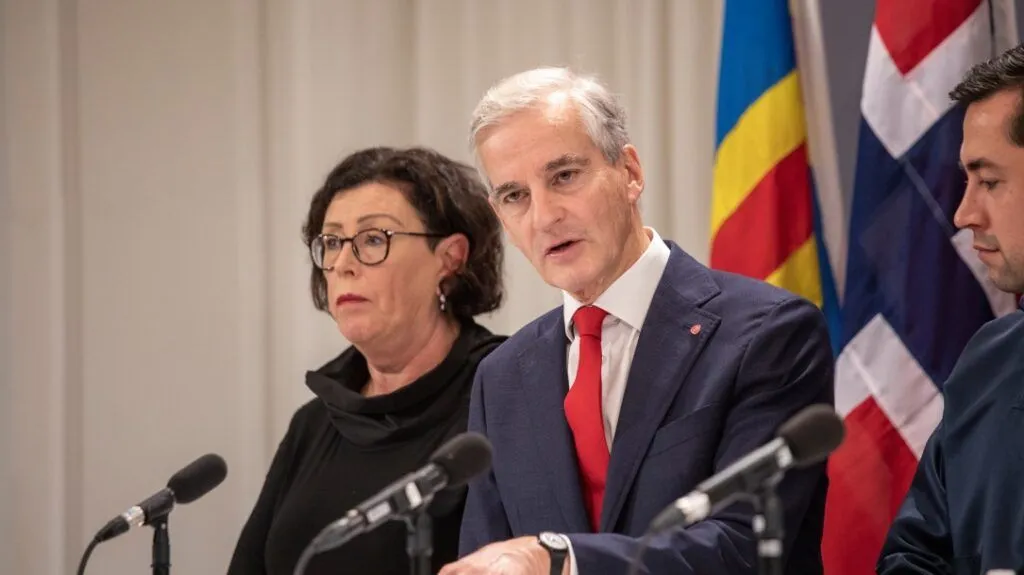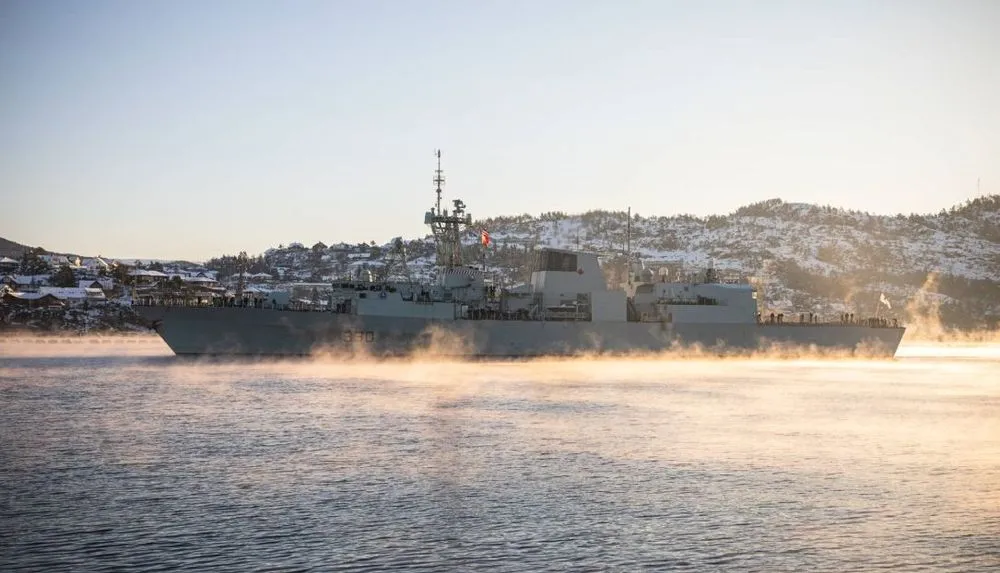Norway PM: Russia poses ‘real and serious’ cyber threat to oil and gas industry
Norway’s prime minister Jonas Gahr Støre warned on Thursday that Russia poses “a real and serious threat” to the country’s oil and gas industry amid criticisms that the Scandinavian country has acted too slowly to protect its petroleum sector from cyberattacks.
In a speech explaining the threats, Støre announced the country’s counterintelligence and cybersecurity agencies were “now working more closely together to defend us against digital threats.”
He spoke following the recent arrests of seven Russians in Norway in connection to incidents in which drones were flown over major energy installations, and cautioned: “We must not be surprised if there are more such arrests in the future.”
Norway’s Police Security Service (Politiets sikkerhetstjeneste or PST), the country’s counterintelligence agency, has now taken over the investigations into these incidents. It warned that they may be the product of Russia “taking more chances in its intelligence work.”
“The incidents have created increased attention to our own oil and gas installations. Norway is now the largest supplier of gas to Europe,” the prime minister warned, adding that Norway was providing technical assistance to Sweden and Denmark regarding the investigation into the suspected sabotage of the Nord Stream I and II pipelines.
Norwegian gas exports have increased by close to 10% since the beginning of the war in Ukraine and security around those installations has been “tightened on land and at sea” he added.
“In the North Sea, the Norwegian Armed Forces sail together with our allies to secure Norwegian oil and gas installations, and all those who work there. The Home Guard is visibly present at the installations on land,” he said.
But the risk of a significant cyberattack has prompted concerns. The country’s general approach to cybersecurity was criticized by the Norwegian Institute of International Affairs in 2018, when a research project warned that the risk for the country’s petroleum sector “has largely been neglected by politicians and the industry itself in Norway.”

“In an international crisis, the Norwegian delivery of gas and oil to Europe could be threatened, and be the target of digital attacks of a much larger magnitude than what the sector usually experiences,” the study found.
Speaking to The Record, one of the study's authors, Lars Gjesvik, said that there had been several high-profile criticisms of security in the petroleum industry over the past few years which corroborated his study's findings.
“A year after our report the Office of the Auditor General published a report critiquing the extent to which the Petroleum Safety Authority (PSA) detected security concerns, noting how the [government] did not follow-up whether the PSA ‘takes sufficient responsibility for cybersecurity’ [in the sector].”
Although they passed a Security Act in 2019 which introduced new obligations on organizations responsible for critical national infrastructure, the legislation did not cover the petroleum industry until this summer, meaning those organizations did not have the same kinds of interactions with Norway's national security apparatus as it does now.
Sofie Nystrøm, the director of Norway’s agency for cybersecurity, the National Security Authority (Nasjonal sikkerhetsmyndighet or NSM), avoided stating that having the industry covered by the law sooner would have improved Norway's ability to prevent sabotage, but told Norwegian media that the NSM "would have liked to have had more time to prepare the industry.”
Gjesvik told The Record: “There was obvious room for improvement in 2018, and there was obvious room for improvement at the start of this year, but some of the major gaps are being filled.”
He considered a “major cyber incident targeting the sector" to be unlikely, and noted "there are easier ways of disrupting gas flows, but clearly Norwegian gas exports are now incredibly important for the EU and will become even more so over the winter.”
The current situation “where Russian gas exports are suspended or cut short and Norwegian gas exports become essential for Europe, with economic dependencies becoming widely weaponized, was more or less the worst-case scenario we were thinking about back in 2018, and for the foreseeable future that is where we are.”
Alexander Martin
is the UK Editor for Recorded Future News. He was previously a technology reporter for Sky News and is also a fellow at the European Cyber Conflict Research Initiative.



